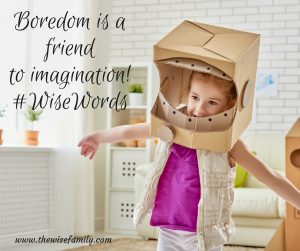As I mentioned last week, I recently finished a great book called, The Importance of Being Little by Erika Christakis. And the Important take away for me was the Very-Important Importance of PLAY!
Last week, I had a parent call me in a frantic state because her 4-year-old son had been expelled from Pre-school. He was running on the playground (pretty fast, I imagine) and ran into another child, causing the other child to fall down and bust open his chin. An ER visit and 8 stitches later, the falling-kid was made a heroic and brave victim and running-kid was OUT!

I am sure there is much more to the story but, really? Pre-school expulsion? How can that possibly bode well for running-kid’s future?
According to Christakis, we’ve got a growing problem of preschool expulsions. And a growing problem of young children being medicated off-label for attention problems. And a growing problem with parents who are frustrated and feeling overwhelmed!
That’s a lot of growing problems!
A classic of the preschool curriculum…remember this…kids sit in a circle and review the calendar. “Today is – MONDAY. And today the weather is – SUNNY. “ A study noted in the Journal of the National Association for the Education of Young Children (2008) of this curriculum strategy stated that, after a whole year of this activity, over half of the children still had no idea what day they were on!
Christakis encourages “Playful Learning”. This type of learning is embedded in relationship building and in things that are meaningful to children. She uses the example of the iconic (handprint) Thanksgiving turkey…a cute craft organized around the calendar and something that is done in classrooms across the country.
But when you look at how children learn, they learn when something is meaningful to them, when they have a chance to learn through building relationships, interacting with one another and using skills like negotiation, conflict resolution and social practice.
It’s hard to get parents to buy into this idea that their kids may not come home with refrigerator art because they spent the week building forts together.
“Playful learning” also involves much more unstructured time – at school and at home. Christakis argues that we don’t have faith in our young children – or in ourselves. We’ve been programmed to believe that the more enrichments we can add on, the better.
Boredom is a friend to imagination!
Sometimes when kids appear to be bored, they actually haven’t had enough time to engage in something. As parents, we often quickly whisk the thing away and move them along to the next thing. And that’s a moment when we can say, “How can I help my child look at this in a new way?” “How can I help him to try something new?” “How can I help her be more patient?”
We’ve turned childhood into “adultified” time where kids have a structured schedule and tasks to complete throughout the day. Some friends of The Wise Family have their own Google calendars on their own iPhones – in 2nd grade!!
Kids no longer have long, uninterrupted stretches of time to engage in fantasy play.
We need to engage in some repair process – because kids have gotten used to lessons, and coaches, and playing with toys that only have one way to use them – and they often don’t know what to do on their own anymore.
The question I want to ask is…What can we do to recapture childhood for our children?
It starts with more play, and less structure. But then what?
The only way we are going to begin this repair process, is to figure out how to play ourselves. Once we can do that again, maybe we can actually stop the growing of problems…
And re-start the growing of WISE families!
Be Wise!

Reference: https://www.naeyc.org/files/tyc/file/CalendarTime.pdf
“Dr. Amy brings together the best emotion-focused strategies with cutting-edge brain science to change the lives of children and families”
— Parent of adopted twin girls“Our clinician has been a tremendous help with family issues and getting our children organized for success in life. Highly recommend her.”
— Mom of three young adults ages 20 – 24“Dr. Amy knows how to relate to children and make them feel comfortable. My son was shy in the beginning but Amy asked him a couple of questions about what he likes and immediately found a connection with him. He happily followed her into the office (just after a 3 min of conversation) and performed the test. He wasn’t nervous or scared and it’s because of her ability to relate to kids.
We had a great experience and he wants to go back! Thank you very much!”
— Dad of 5-year-old assessment client“My friend raves about what Cleo has done for her son!” ~ Parent of an inquiring new client
— Parent of an inquiring new client